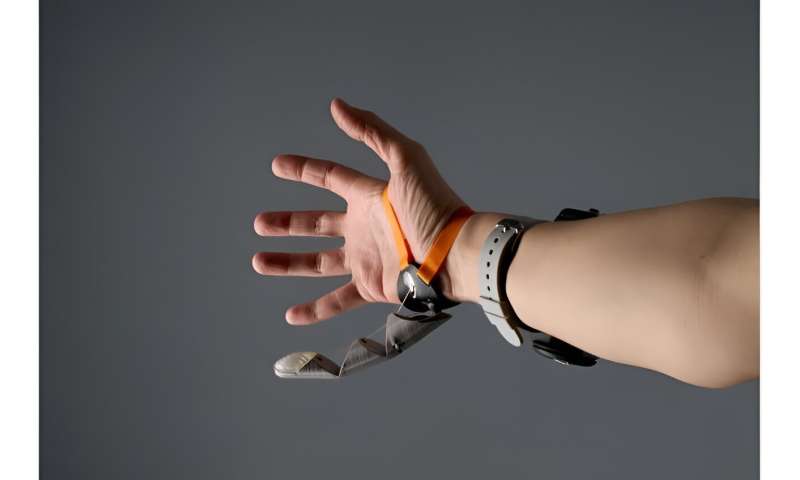Best of Last Week—New technology to identify fossils, adapting to an extra thumb, new ideas on cancer cause

It was a good week for the study of ancient creatures, as a team with members from Germany, the U.S. and Australia, applied a new type of technology to existing fossil finds. Called zooarchaeology by mass spectrometry, the technique allows for analyzing collagen proteins to identify even the smallest fossil pieces. Also, an international team of researchers discovered a new dinosaur. Named Musankwa sanyatiensis and found in Zimbabwe, it is just the fourth dinosaur named from that country. And a team of archaeologists at the University of Bristol unearthed a large fossil that they suggest exposes the origin of Welsh dragons.
In technology news, a team of engineers and roboticists at the University of Cambridge found that people given a extra thumb just next to their pinkie finger had no difficulty in learning to use it. Test volunteers were able to control the thumb using pressure sensors under one of their feet. And a team of computer scientists at Purdue University found that the popular LLM ChatGPT is wildly inaccurate when responding to computer programming questions, a finding that could be problematic considering many computer science majors have begun using LLMs as a resource. Also, a combined team from Pohang University of Science and Technology and the National Institute of Science and Technology, both in South Korea, developed a high-energy, high-efficiency, all-solid-state sodium-air battery. And engineers at McGill University made a battery breakthrough that could usher in greener, cheaper electric vehicles.
In other news, a team of health researchers from Finland's University of Helsinki, the National Institute for Health and Welfare, and Turku University of Applied Sciences, found evidence that people eating more fruits and vegetables may sleep longer and better. Also, a team of Earth scientists at the University of Michigan found that the Earth's changing, irregular magnetic field is causing headaches for polar navigation. And finally, an international team of medical scientists found evidence that many types of cancers can be caused by reversible molecular changes—a finding that suggests epigenetic drugs may be used to treat them.
© 2024 Science X Network